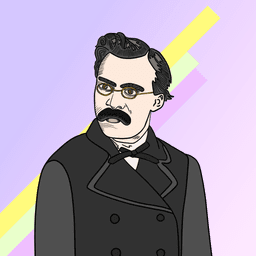Nominative Case in German
German noun cases are one of the most confusing topics for beginners. Here is a guide & overview, to help you master them from the start.
Nominative
The nominative case is the subject case in German grammar. It is used to indicate the noun or pronoun that is performing the action in a sentence. In simple terms, it is the "doer" of the action. For example, in the sentence "Der Hund bellt" (The dog barks), "Der Hund" (the dog) is in the nominative case because it is the subject of the sentence and the one doing the action (barking).
To form the nominative case, the definite article "der" (masculine), "die" (feminine), and "das" (neuter) are used in front of the noun. For example, "der Hund" (the dog - masculine), "die Katze" (the cat - feminine), and "das Haus" (the house - neuter).
In German, the nominative case is also used for sentences with compound subject. For example, in the sentence "Mein Bruder und ich gehen ins Kino" (My brother and I are going to the movies), "Mein Bruder und ich" (My brother and I) is in the nominative case as they are the subject of the sentence.
It's also worth noting that German pronouns also change their form depending on case, for example, "ich" (I) is nominative, "mich" (me) is accusative. Some of the common nominative pronouns are:
| Pronoun | Translation |
|---|---|
| ich | I |
| du | you (informal singular) |
| er | he |
| sie | she |
| es | it |
| wir | we |
| ihr | you (informal plural) |
| sie | they |
| Sie | you (formal singular/plural) |
It's important to note that in German, the verb conjugation changes depending on the subject pronoun. for example in the sentence "Ich gehe ins Kino" (I am going to the movies), the verb "gehe" is conjugated to match the subject pronoun "ich".
In summary, the German nominative case is used for the subject of a sentence, and it is indicated by the definite article "der," "die," or "das" in front of the noun. It is also used for compound subject. This case is used to indicate the noun or pronoun that is performing the action in a sentence. Understanding the nominative case is crucial for proper sentence construction and verb conjugation in German.



